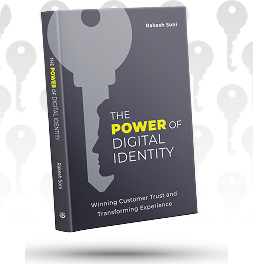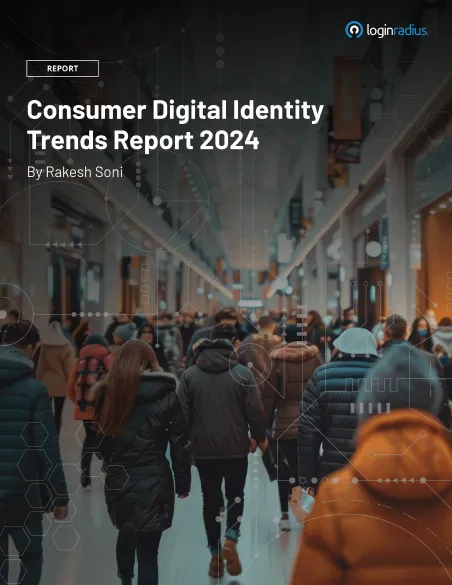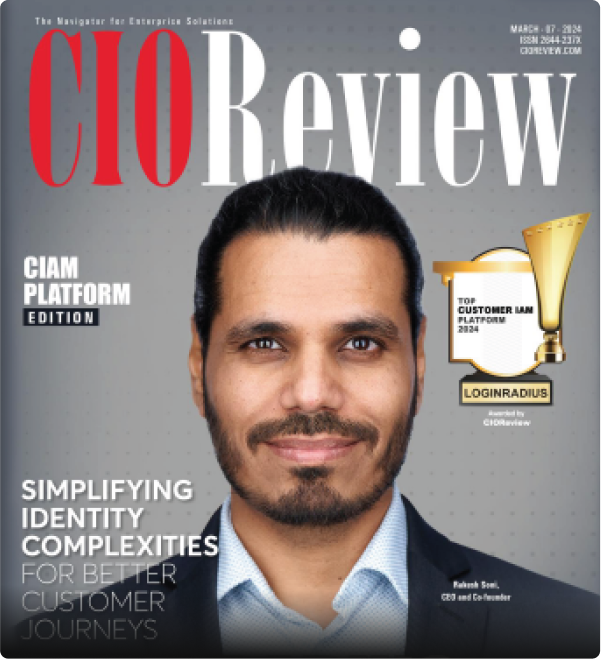Why Financial Industry Needs an Identity Management System Now More Than Ever
A robust identity management system helps financial organizations remain compliant and conduct business in a secure environment.


Learn How to Master Digital Trust

The State of Consumer Digital ID 2024

Top CIAM Platform 2024
The financial industry has a deep-rooted relationship with its customers. After all, handling mortgages, retirement savings, home, and personal loans require the highest level of trust. It comes from ensuring that the right people have access to the right information.
Likewise, a robust identity management system helps financial organizations remain compliant and conduct business in a secure environment.
The COVID-19 outbreak has led to fresh strings of phishing and real-time identity thefts. As countries across the globe are rolling out financial iterations in response to the pandemic like tax due-date extension and new direct stimulus payments, fraudsters are using this as an outright theft opportunity.
Recent Cyber Attacks in the Finance Industry
-
According to the Federal Trade Commission, Americans alone have lost $13.4 million to coronavirus-related fraud in 2020 so far.
-
On April 15, 2020, the U.S. Secret Service and the FBI declared that the North Koreans have used cyber attacks to steal some $2 billion over the past decade.
-
According to VMware Carbon Black analytics, the global financial industry saw a 38% increase in cyberattacks and 148% spike in ransomware attacks between February and March 2020.
-
As the estimated global cost of cyber attacks stands between $45bn and $654bn, ECB chief Christine Lagarde warns the world of a plausible financial crisis.
-
In mid-march, hackers silently entered the London-based fintech company, Finastra Group Holdings Ltd., and captured employee passwords. They also installed dozens of backdoors inside Finastra's network. As a result, the company had to shut down its servers.
Get the severity now?
So, how do banking and online financial industries safeguard identities in the consumer-centered market?
The answer lies in implementing a modern identity management system that is good at data protection.
But before exploring the growing need for identity management in the online finance sector, let's understand the security challenges in the finance sector first.
Security Risk and Challenges Faced by Finance Industries
Financial institutions feel the most burn from cyberattacks. After all, that's where all the money is. Attackers can take many forms and spread across a wide range of channels. The widespread ones include:
1. Bot Attacks
Bots are a series of automated online programs designed to conduct repetitive tasks. The majority of modern businesses in the financial sector use bots to enhance customer service.
But, on the downside, if the bad guys operate them, bots can breach cybersecurity defenses and steal customer data.
For example, they can be used to launch brute force attacks and result in corporate account takeover fraud.
You need to implement the right fraud detection solution to stop bot attacks. Also, having a robust device authentication system can keep your customers safe.
2. Ransomware Attacks
It is no secret why ransomware hackers are after financial institutions. That includes banks, insurance companies, and any other organization where data is a basic entity for survival.
Cybercriminals take advantage of this vulnerability because they know companies have both the means and the incentive to pay the ransom and have their data decrypted.
The first line of defense against ransomware attacks is having a secure data backup system. Next, you need to implement disaster recovery solutions and conduct cybersecurity training for employees.
3. Phishing Attacks
In the financial service industry, phishing scams are also as common as ransomware attacks. Attackers employ social engineering tricks to break into networks.
Most of the time, they are standard email links and attachments. But phishing attacks are also executed via pop-ups, chatbots, media feeds, search engines, and browser extensions.
To counter, get your financial institute advanced endpoint protections and strengthen its payment system. Above all, prepare for how you'll limit damage and recover if you are at the receiving end.
Advantages of Identity Management in Online Finance Sector
An identity management system can improve the security and productivity of a financial institute. It offers numerous benefits to keep customers' sensitive data safe and unharmed from attackers.

Integrating a reliable CIAM platform into your institution can build cyber defenses against criminals that are both comprehensive and resilient. Furthermore, it is equipped with unique advantages where you can:
- Leverage the identity management system for multi-factor authentication and authorization in the cloud.
- Securely manage customer and employee identities.
- Enjoy a complete user management system and delegate privileges across multiple accounts.
- Manage identities in a complex IT environment through single sign-on (SSO).
- Minimize the risk of data loss through automated reporting.
- Fulfill governance requirements by enforcing policies and auditing compliances.
- Employ security standards such as SAML, LDAP, to ensure secure access to third-party applications.
- Proactively monitor inactive user data, application utilization data, and other login activities.
How LoginRadius mitigates data security risks in the financial services
LoginRadius is a leading cloud-based customer identity and access management solution that makes managing identities of financial institutions smooth and seamless. It provides the finance sector with real-time customer insights and makes sure that only the authorized person has access to confidential data and assets.
With the LoginRadius identity platform, online finance companies can enjoy the following benefits:
Omnichannel customer-centric solutions
To enhance customer experience, LoginRadius offers the ease to access across multiple devices, platforms, and applications. The identity platform also allows companies to configure login methods via a plethora of options like standard login, phone login, passwordless login.
They can leverage single sign-on capabilities to login to multiple domains using a single set of credentials. LoginRadius also supports federated SSO for third-party domains.

Furthermore, companies can improve security, usability, and user experiences with consumer identity data and new-age reporting tools. There is provision for data segmentation too.
Secure, encrypted data storage
Protecting the confidentiality and integrity of customer data is a crucial aspect of financial institutions. LoginRadius offers layered security by restricting and monitoring access to customers' data.
The CIAM solution ensures that limited people have access to customer data, and they are the only ones who can view and manage them. This further cuts down the possibility of unintentional data leaks.
Other security enhancement features include:
- Real-time fraud analytics to prevent fraudulent access attempts.
- Multi factor authentication and adaptive authentication to enhance security.
- Strict data management and scoped access control to reduce risk.
Up-to-date security and compliance
In the fight against high-profile data breaches, the identity management system supports global regulatory compliances that are critical to delivering frictionless customer experience. A few of the popular ones include:
- PCI DSS PCI SSC administered standard for payment transactions
- ISO 27001:2013 – Information security management system
- ISO 27017:2015 – Information security for cloud services
- US Privacy Shield Complaint resolution for EEA citizens
- ISO/IEC 27018:2019 – PII Protection
- AICPA SOC 2 (Type II) – System-level controls for Trust Services Criteria – security, availability, process integrity, confidentiality, and privacy
- ISAE 3000 – International attestation standard for assurance over non-financial information
- NIST Cybersecurity Framework – Standardized security framework to manage and reduce cybersecurity risk.
One of the best examples of meeting international regulations comes from Juhll. This growth-driven digital marketing service acquired Banks.com to provide financial institutions with a trusted source for financial assistance. LoginRadius has helped Juhll to comply with new regulations in terms of where and how customer data is stored.
Juhll Case Study
Conclusion
LoginRadius adheres to the best practices relating to authentication and access control. With features like multi-factor authentication and role-based data management, the identity management system reduces the risk of financial data theft. The end goal is to keep up with the changing trends and improve customer experience in the financial industry.

